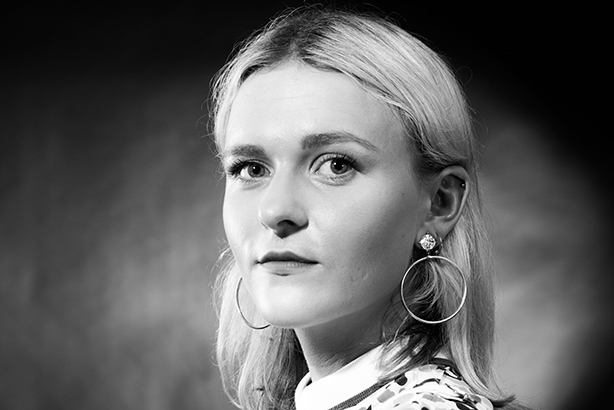
The past year has been a very introspective time. Locked in our homes for 12 (bloody long) months, we’ve had more time to think about our careers and learnt more about the way we work than ever before. It’s been interesting - and whilst there’s been some almighty highs, there’s certainly been some lows too. Working into headphones, sitting solo at home, you can find yourself putting your work under a magnifying glass and self-doubt can rear its ugly head, otherwise known as Imposter Syndrome.
So, I decided to ask around and realised that it’s a feeling that’s incredibly prevalent in our industry. Putting pen to paper, I’ve had a slow start writing about it because every time I tried, I realised I had Imposter Syndrome writing about it. How meta is that? So, the easiest way to start - to kick off with the experts...
In 2018 Harvard Business Review described Imposter Syndrome as: ‘a collection of feelings of inadequacy that persist despite evident success’. ‘Evident success’. That’s kind of interesting and very true. There’s perhaps no other industry where you get as much instantaneous feedback to shore up your ego as in PR. From extracting a vast amount of money from a client for an idea from your brain, to seeing that idea translate into reams of national coverage, to being handed a trophy for getting so much coverage for the very idea from your brain - the positive feedback loop is endless.
But, sadly, it’s a pendulum that swings both ways. If you’ve ever been on a losing streak, you’ll fully understand the long hard look in the mirror where you ask yourself ‘Am I in fact Leonardo Di Caprio in Shutter Island? Am I in an asylum imagining I’m a hotshot creative while in reality I’m pitching to a board room of teddy bears with scrambled egg on my face?’
Or it can be as simple as not feeling like you should ask for that pay rise because you think you so clearly don’t add enough value to a business and any success you have had is simply down to luck.
According to a 2020 study, up to 82% of people experience Imposter Syndrome at least once in their lives, and it’s most common in women, up to 90%. When chatting to industry mates, it’s apparent that the pandemic has made it worse for many. Working from home, isolated from colleagues, away from the comradery of the office environment, we’re left with more room for self-doubt and time to ruminate on all the tiny missteps we may have made in that latest pitch.
Plus, with less stimulation from the outside world; conversations listened in on during the morning commute, spoken about in the pub over a beer, or with a cabbie on the way home - creative juices in can dry up somewhat, making the cycle worse.
But is a dash of Imposter Syndrome crucial to being a good creative? I think so. Every day, we ask our clients to invest in the very ideas that come out of those brains of ours. To trust us when we tell them that *this idea* will get reams of #nash cov, make their brand so famous they might as well buy their ticket to Cannes right now. If we wholeheartedly believed in our own genius this much, we’d take a fairly lackadaisical attitude to spending their money.
As people riddled with self-doubt and a quest for perfection, we question everything, we stress-test everything, we rehearse pitches, we push ourselves to come up with something bolder, smarter, more groundbreaking all in painfully short timeframes. Wins and awards feed our sense of wellbeing temporarily, but then it’s back to self-doubt and doing absolutely everything to disabuse ourselves of the feeling that we don’t deserve to be here.
I reached out to a few industry leaders to ask them if they still feel like imposters in their own impressive job roles. The answer was a resounding yes. One’s still a bag of nerves before a pitch. One has regular therapy to dissolve fraudulent feelings. Another worried their insights were drying up, compared to the young whippersnappers coming in below them. We’re all our own worst critics and as an industry, we have extremely high self-expectations. Climbing the ladder it seems, does nothing to dissipate the voice of self-doubt and I’m ok with that. Because criticising your work, realising you’ve not quite nailed it and asking yourself how you can make it better, creates the campaigns that genuinely do land the results and make you feel dead proud when polishing that shiny new trophy. Even if it did take a few intense moments to get there.
Someone smart once said ‘thinking harder about your work, makes you harder on your thinking’. I couldn't agree more. I think the innate self-doubt in the PR industry is the direct catalyst for the phenomenally clever and fiercely bold creative work that comes out of it.
We over index as professionals with imposter syndrome. And thank god, because it’s our driving force. Even though it can be a struggle, the superpower comes when you learn how to turn the voices asking ‘am I good enough’ into ‘is the work good enough’. But, for all the times that negative inner monologue shouts louder than we can handle, there’s comfort in knowing that we’re all just a bunch of self-professed imposters in really good company. Plus, that scrambled egg you think is on your face... well, everyone else thinks it’s on theirs too.
